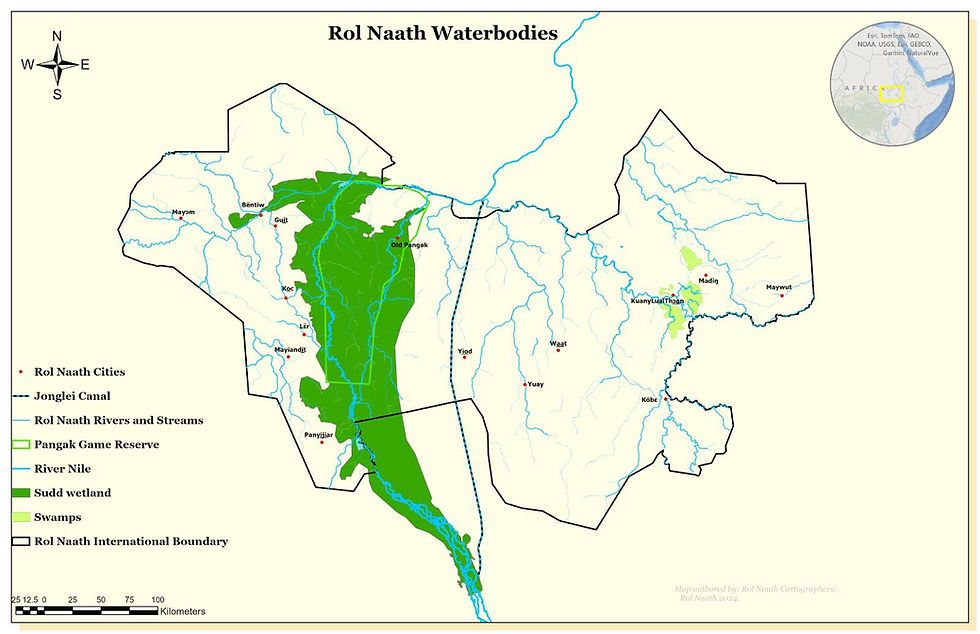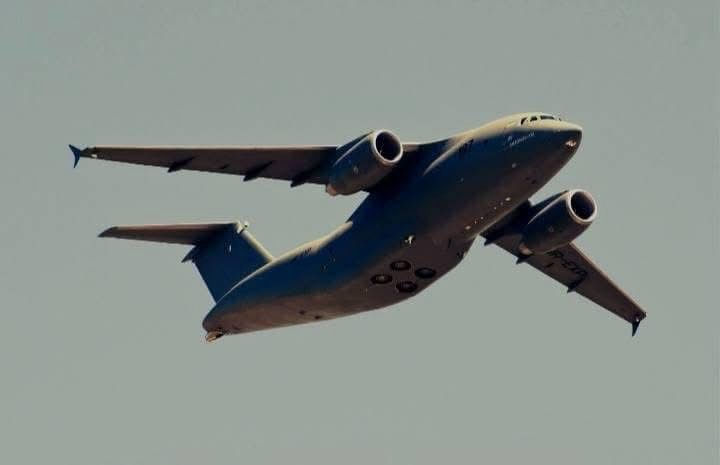Explore Nuerland: Sudd wetland
- Rol Naath
- Jan 17
- 2 min read
Updated: Feb 3
The Sudd Wetland is a vast, swampy region situated in Nuerland, and it represents one of the largest wetlands in the world. It is the largest tropical wetland in Africa and the second-largest globally, following the Pantanal in South America. In 2006, the United Nations designated the Sudd as a Ramsar Wetland of International Importance, highlighting its global ecological significance.
For the Nuer people, the Sudd Wetland is crucial for survival, as it serves as a vital resource for storing floodwaters and rainfall. The wetland and its surrounding areas are integral to our way of life, offering rich resources for the largely rural population. Livestock, fishing, and agriculture are the primary means of livelihood, and the seasonally flooded grasslands provide fertile pastures for grazing, ensuring the survival of our livestock.
The vegetation of the Sudd is classified into five main types based on elevation above the river flood level: lakes and rivers, floating plants in the swamp, river-flooded grasslands, rain-flooded grasslands, and forested grasslands on the outskirts. Our local communities have long cultivated the grasslands and wooded areas surrounding the wetland.

The Sudd is teeming with aquatic life, particularly fish. Around 70 fish species have been documented, although many of the region's unique species remain poorly studied. The wetland is also home to more than 400 bird species, providing food and water for countless migratory birds. It serves as a crucial sanctuary for these species during their migrations.
The Pangak Game Reserve, located within the Sudd Wetland in the Fangak region of Nuerland, was established in 1939 as the "El Zeraf Game Reserve" under the British-Sudanese administration. This protected area is essential for preserving large concentrations of mammals and plays a significant role in maintaining the ecological balance of the region.
In essence, the Sudd Wetland is not just a natural resource; it is the lifeblood of the Nuer people, shaping our culture, economy, and way of life. Its rich biodiversity and seasonal abundance are central to our survival.
The halting of the Jonglei Canal project, which had the potential to have a significant detrimental impact on the Sudd and the Nuer people, demonstrated our dedication to conserving the Sudd. Any harm to the Sudd threatens the Nuer people's very existence.





Comments